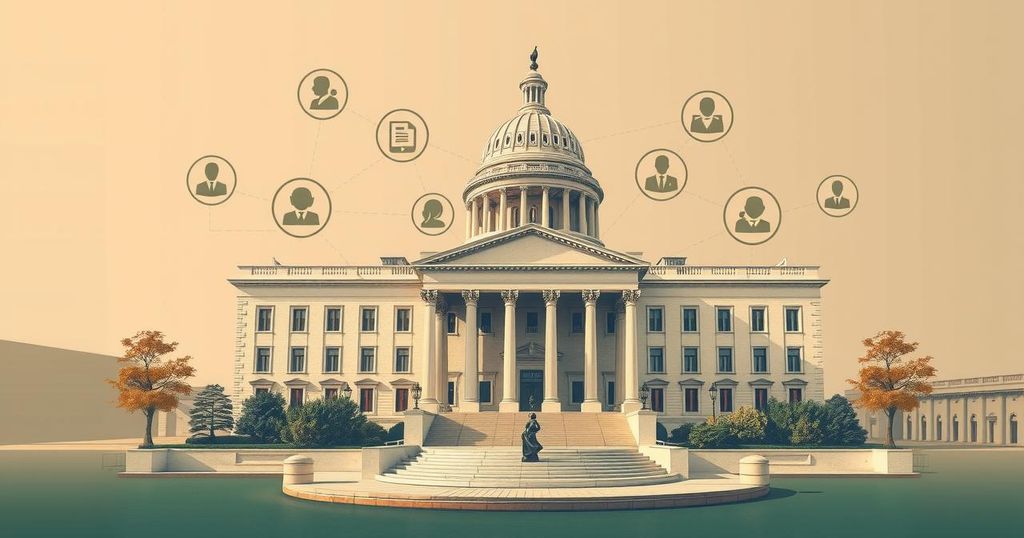Peru has passed a new law restricting NGOs, prohibiting them from taking legal action against the state regarding human rights abuses. Critics argue that this legislation undermines the effectiveness of NGOs and threatens the rights of vulnerable populations. Supporters assert it promotes transparency. The government must decide on the bill’s enactment or amendments within two weeks.
Peru’s Congress recently enacted a controversial reform to the international cooperation law, which has drawn significant criticism from rights groups. The law imposes stringent restrictions on non-governmental organizations (NGOs), such as barring them from engaging in legal actions against the state for human rights violations. The legislation was passed by a Congress predominantly influenced by right-wing parties.
Key provisions in the new law classify advising, assisting, or financing lawsuits against the state as a “serious offense,” while also increasing the scrutiny of foreign funding for NGOs. This development has raised considerable concerns that the law may undermine organizations’ capabilities to support vulnerable communities and address corruption effectively.
In response to the bill, various rights organizations have voiced their opposition, with Promsex, an NGO focused on women’s rights, stating, “We reject this law, which hinders access to justice and perpetuates impunity.” The Legal Defense Institute stressed that the new legal framework represents a significant infringement on the right to defense and effective judicial protection, adding, “The slogan behind this law is a single one: to harass and persecute NGOs and to silence those who defend human rights.”
Supporters of the legislation argue that it enhances transparency. Right-wing congressman Alejandro Munante criticized NGOs, claiming they lack accountability and seek to dictate the political landscape of the country. The Peru government now has a two-week window to either enact the bill or return it to Congress with proposed changes.
The recent enactment of the reform to Peru’s international cooperation law has elicited strong responses from rights organizations, which argue that it threatens the operations of NGOs and undermines efforts to protect human rights. While supporters claim the law enhances accountability, critics contend it reflects a trend towards authoritarianism and the suppression of civil society. The government faces a critical decision regarding the future of this legislation in the forthcoming weeks.
Original Source: www.dw.com




